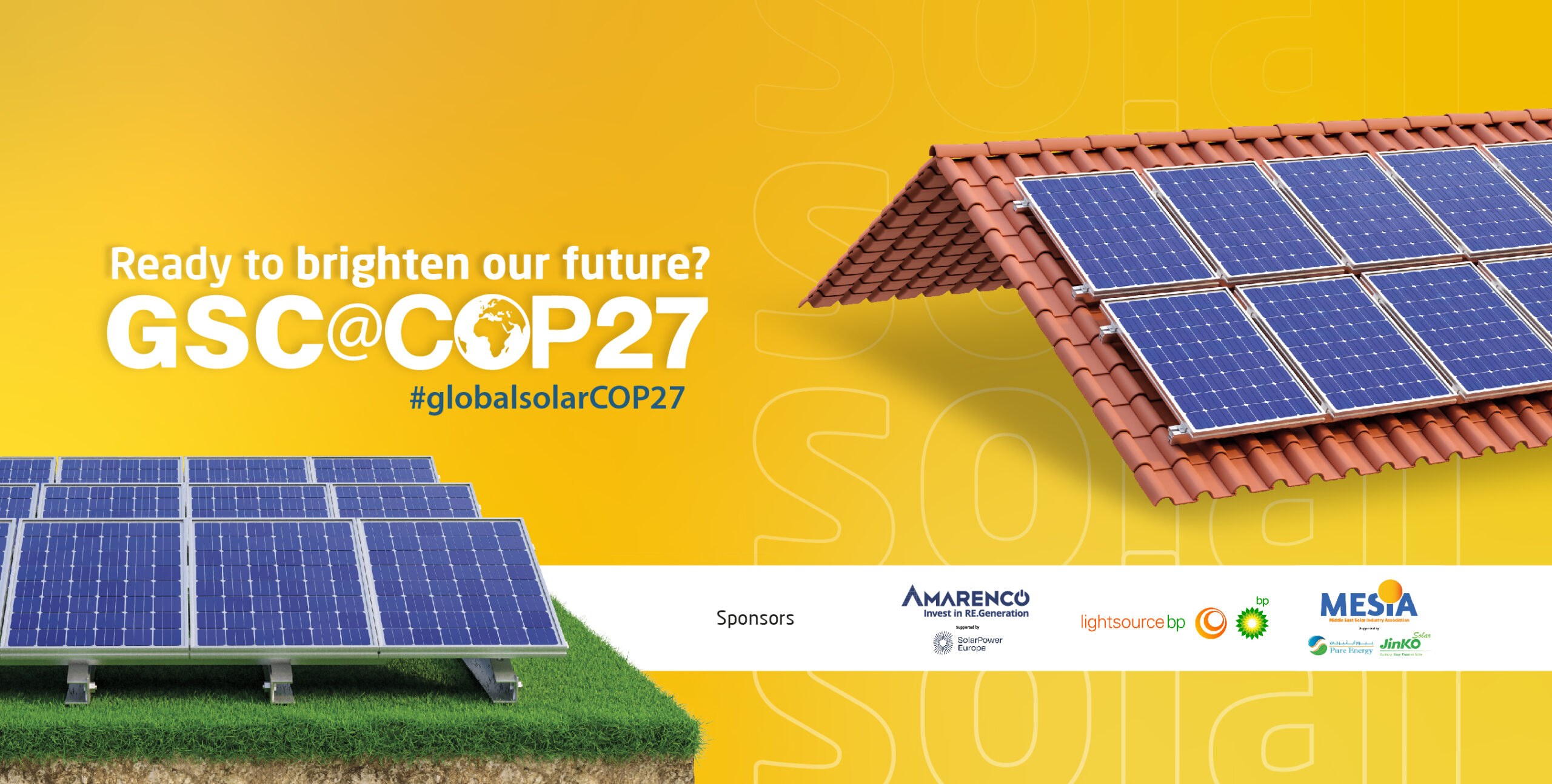
GSC FORUM 2022
Session 1
Location: Wind and Solar Pavilion, Blue Zone@COP27 (Area C, Pavilion 51), Sharm El Sheikh, Egypt
Empowering people with solar PV
Distributed solar PV can increase energy security while lowering power costs, unlocking a broad range of socio-economic benefit for people around the globe while empowering them to contribute to the clean energy transition. In fact, distributed solar generation can vastly support the overall solar PV’s capacity targets on a net-zero pathway: around 5 TW in 2030, more than 10 TW in 2040 and more than 14 TW in 2050, according to IRENA and IEA. To be on track for net-zero by 2050, IEA estimates that globally, 100 million households need to be equipped with rooftop solar PV by 2030 and 240 million by 2050 (up from the current 25 million).
Faster distributed solar PV deployment can also help stimulating local supply chains addressing the need for well-functioning and diversified supply chains to ensure a secure energy transition.
In this event, the GSC will present a policy benchmarking on regulations and authorization procedures to match main bottlenecks in emerging markets with good practices in mature ones, and propose policy recommendations to maximize the uptake of rooftop solar PV. In doing so, the GSC will involve members from different continents as well as partners from the industry and beyond.
Session 2
Location: Wind and Solar Pavilion, Blue Zone@COP27 (Area C, Pavilion 51), Sharm El Sheikh, Egypt
Solar PV can be a leading force towards international energy security in a context of international instability, energy and climate crisis
The current energy crisis has highlighted the risk of over dependences from fossil fuels and remarked the role of renewables as the only true gateway to international energy security. To accelerate the deployment of renewables there is the need for urgent actions to diversify supply chain, streamline permitting, and provide clear investment signals.
In the short-term, policymakers should set robust guidelines on green taxonomy to ensure a merit order is in place for public/private investment in energy projects and mobilize investment in large-scale solar projects which can support a way out of the energy crisis and are in line with energy, security and climate goals.
At the same time, permitting of large-scale solar projects has to be accelerated, through open call procedures for project applications and a series of fast-track measures. This can quickly bring solar projects in the development pipeline to construction within the next few years.